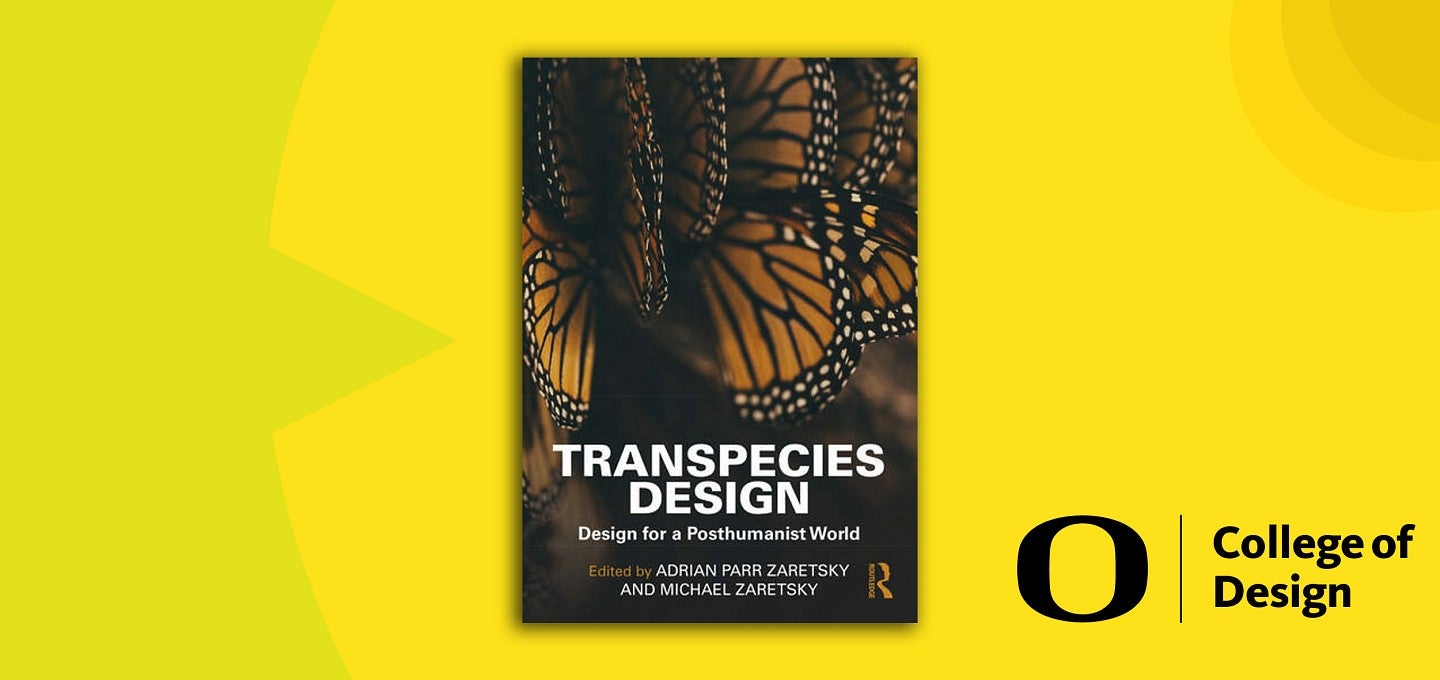
The United Nations released the Global Assessment Report on Biodiversity and Ecosystem Services in May 2019, warning that human activities will drive nearly one million species to extinction in a few decades. The primary drivers for this mass extinction are habitat loss and biodiversity demise caused by pollution, changing climate, introduction of nonindigenous species, clearcutting, overpopulation, and overconsumption. Humans must change course as the success and wellbeing of humans and other-than-human species are directly tied to one another. The College of Design's Dean Adrian Parr is committed to reversing the ecological harms human activities create to define a new system built on interconnected flourishing and the rejection of an only anthropocentric view of life through a transpecies approach, as outlined in the latest publication from Routledge, Transpecies Design: Design for a Posthumanist World.
Transpecies design, as outlined in this text, offers a new approach to regenerating the natural environment while honoring biodiversity. Rather than presenting the human experience as the end goal of all design, transpecies design takes the inextricable linkages connecting living things as both its starting point and end goal. It moves beyond human experience serving as the fundamental ingredient for making better, inclusive design processes and decisions. Edited by Dean Parr Zaretsky and the School of Architecture & Environment Associate Professor and Head of the Department of Architecture, Michael Zaretsky, the book features more than twenty international experts from a diverse background of artists, designers, architects, and academics who help articulate and define how humans can move towards a transpecies future.
Dean Parr Zaretsky's work with this reconciliatory design philosophy continues to build on the expertise and history of the College of Design, which has consistently been at the forefront of addressing climate change, environmental degradation, and social inequities through design thinking and practices through its program offerings and alumni support. Longtime donors and supporters of the college, Sue and Mort Fuller, have been instrumental in supporting the conception and development of this novel approach. The Fullers helped partially or fully fund major transpecies design events, research, and initiatives for the college, including the college's Transpecies Design exhibit for the 2023 ECC Venice Architecture Biennale, the 2023 Transpecies Design Symposium in Venice, and the 2022 Overlook Field School focused on transpecies design. Their generous support of time and funds directly helped construct the manual that will become essential reading for artists, designers, and architects, as well as students of architecture, landscape architecture, interior architecture, art, product design, urban design, planning, environmental philosophy, and cultural studies, who seek to create a better tomorrow in an uncertain climate future.
Preorders are now accepted with a 20% discount available to those who use the promotional code AFLY02 until September 30, 2024.
